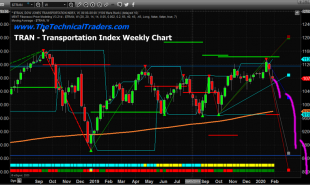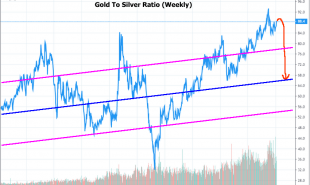
Just Saying - Bitcoin is just postponing a civil war. Miners are like floor traders loathe to give up their control for broader expansion. Just keep that in mind when you read these "Success" stories about the forking.
1- the problem technologically is not solved at all and wont be until computing catches up with the demand potential
2- miners will fight any changes that opens up the architecture and diminishes their control
3- the secular trend is what matters, and that is BTC is not going away on its own. ignore sensational headlines, but do not ignore price
Here is the problem between miners and developers as previously played out between floor traders (miners) and investors (developers)
The real problem is Miner Voting Power. From our post before the Fork debate, that continues regardless of any tech solution.
It's About Control
Right now the BitCoin group is running into what we call "floor trader fear". The voting members are chafing at the idea of scaling their supply by adding servers and/ or server power. This would disrupt their own little empires, not unlike the trading floor fearing Globex back in the day. And so many exchanges held out and protected the floor. And in the end they died. PHLX, AMEX, COMEX, PCOAST, CSCE, all gone or absorbed because they were late to adapt new technology and protect their liquidity pools. If Bitcoin removes power from its voting members control by demutualizing and uses those proceeds to increase server power they will likely excel.
Cryptocurrencies
Bitcoin Survives a 'Civil War,' but Is It Still Doomed?
Written by Jake Anderson for antimedia.org
2-3 minutes
(ANTIMEDIA) — For weeks, cryptocurrency enthusiasts and investors have sounded downright apocalyptic regarding the so-called “hard fork” in the Bitcoin blockchain. Many feared that a ‘civil war’ between miners and developers over a software update would fracture the cryptocurrency into two or possibly more competing alt coins that would crash the value of bitcoin and render its tokens — painstakingly mined over the last decade — worthless overnight. However, as the crypto D-Day neared its end on August 1st, it appeared that the virtual peer-to-peer currency had not only survived its biggest challenge to date but also stood to flourish.
The original Bitcoin blockchain (BTC) did drop slightly in value but had already seen a week of gains following news of a compromise between the competing factions. The compromise birthed an entirely new currency, Bitcoin Cash (BCH), that will run on an entirely new blockchain created to facilitate more transactions.
The “fork” between BTC and BCH did not appear to have damaged the original Bitcoin in initial trading. At the end of the day on August 1st, BTC was priced at just over $2,700. Meanwhile, Bitcoin rival and the second largest cryptocurrency, Ethereum, which runs on a smart contract blockchain system, was up nearly 10%.
Meanwhile, Bitcoin Cash itself started showing signs of life on Wednesday morning with a huge spike in trading, though one cryptocurrency analyst called it an artificially inflated price.
While its short-term prospects remain strong, some still consider Bitcoin doomed to fail as the first major prototype of decentralized blockchain technology. The Segwit software update adopted by BTC, according to some cryptocurrency analysts, does not address some of the more critical problems with Bitcoin, which include slow confirmation time and transaction fees.
For many, the inherent flaws of Bitcoin’s blockchain mean that another alt coin, or perhaps several virtual currencies, will eventually rule the roost.
Read more by Soren K.Group







